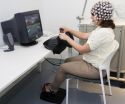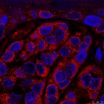(Press-News.org) A spoonful of sugar helps the medicine go down—and so do movie tickets, cell phone minutes and discounts on airline flights.
A private South African health plan increased patient use of preventive care such as mammograms and influenza vaccine with a program that incentivized healthy behavior using discounts on retail goods and travel. The study, which was led by researchers at Harvard Medical School and the RAND Corporation, was published today in The American Journal of Managed Care.
"Even though most people know that preventive care is important, too few people take advantage of it," said Ateev Mehrotra, associate professor of health care policy at HMS and a hospitalist at Beth Israel Deaconess Medical Center. "Incentive plans like this try to reinforce those long-term gains with more immediate rewards."
Encouraging the use of preventive care and other healthy behaviors among patients is a core element of efforts to improve the quality and value of health care, including the Affordable Care Act.. Learning how to encourage healthy behaviors is crucial for these efforts, and little is currently known about which incentive techniques work.
A few small-scale pilot programs and clinical trials have assessed the usefulness of incentives for efforts such as smoking cessation, but the long-term benefits of an incentive plan in real-world settings are not well understood. The plan in this study has been running for more than a decade with more than 1.5 million enrollees, providing ample data to study the impact of the plan on patient behaviors.
The incentive program is offered by Discovery Health, a private South African health plan. Over two-thirds of the health plan's enrollees have voluntarily chosen to pay approximately $15 per month to join the program. When program participants use preventive care measures, like blood pressure, glucose and cholesterol tests, they earn points that translate into discounts on retail goods and travel.
After joining the incentive plan, patient use of preventive services rose from 3 percent to 8 percent across a variety of services, the researchers found. These findings support the idea that patient incentive programs might be a mechanism for health plans to increase rates of preventive care, the researchers said.
South African participants in private health plans are similar demographically to the overall U.S. population and have similar access to health care. Such likeness makes this study a good model for considering parallel plans here in the U.S., the researchers said. Indeed, the same South African program is now being deployed by a U.S. health plan.
The increase in healthy behaviors was significant, Mehrotra noted, but even participants in the incentive program did not take advantage of the preventive measures available to them as often as medical guidelines recommend.
"There is no silver bullet in health care," Mehrotra said. "These types of incentive plans are not a panacea, but our findings suggest that they are a useful tool in encouraging the kinds of patient behavior that we would like to see more of."
INFORMATION:
This study was supported by a grant from the National Institutes of Health (NIH) Common Fund (R21-HD071568-01) and a career development award from the NIH (KL2-TR000146). One co-author reports employment with Discovery Health Plan, whose data is studied in this paper.
Written by Jake Miller
Prevention incentives
In South Africa, a private health care plan uses novel retail incentives -- movie tickets and travel discounts -- to encourage members to obtain preventive care services
2014-06-27
ELSE PRESS RELEASES FROM THIS DATE:
Extinct undersea volcanoes squashed under Earth's crust cause tsunami earthquakes, according to new
2014-06-27
New research has revealed the causes and warning signs of rare tsunami earthquakes, which may lead to improved detection measures.
Tsunami earthquakes happen at relatively shallow depths in the ocean and are small in terms of their magnitude. However, they create very large tsunamis, with some earthquakes that only measure 5.6 on the Richter scale generating waves that reach up to ten metres when they hit the shore.
A global network of seismometers enables researchers to detect even the smallest earthquakes. However, the challenge has been to determine which small ...
A study warns of the risk entailed when night owls -- 'evening-type' people -- drive early in the morning
2014-06-27
Researchers from the University of Granada have shown that individual chronotype—that is, whether you are a "morning-type" or an "evening-type", depending on the time of day when your physiological functions are more active—markedly influences driving performance.
In fact, evening-types are much worse drivers—they pay less attention—at their "non-optimal" time of day (early in the morning) by comparison with their optimal time (during the evening). However, in this experiment morning-types were more stable drivers than evening-types and drove relatively well both in the ...
Colon cancer survivors are more likely to have pain in the back and abdomen
2014-06-27
Researchers from the University of Granada have discovered that colon cancer survivors are more likely to suffer future lesions related with pain in the back and lower abdomen than healthy individuals of the same gender and age.
These patients present a series of abnormalities in the abdominal wall architecture—the site of surgery in oncological treatment. Moreover, they have specific abnormalities in processing chronic pain that may increase their sensitization to any kind of pain in the future.
In two articles published in Pain Medicine and the European Journal of ...
'Big data' technique improves monitoring of kidney transplant patients
2014-06-27
A new data analysis technique radically improves monitoring of kidney patients, according to a University of Leeds-led study, and could lead to profound changes in the way we understand our health.
The research, published in the journal PLoS Computational Biology, provides a way of making sense out of the huge number of clues about a kidney transplant patient's prognosis contained in their blood.
By applying sophisticated "big data" analysis to the samples, scientists were able to crunch hundreds of thousands of variables into a single parameter indicating how a kidney ...
Global healthcare is a labour of Hercules
2014-06-27
Einstein once observed that "it is harder to crack prejudice than an atom". If he was right, then Hans Rosling is faced with a labour of Hercules. As Professor of International Health at the Karolinska Institute in Stockholm, he finds himself fighting against the cliché that the world is divided between rich and poor. "This neat division simply no longer exists. The statistics reveal a far more complex picture, with more and more people worldwide living in relative prosperity. This means that in health research in particular it is time for a paradigm shift," says Rosling. ...
Sex hormone levels at midlife linked to heart disease risk in women
2014-06-27
PITTSBURGH, June 27, 2014 – As hormone levels change during the transition to menopause, the quality of a woman's cholesterol carriers degrades, leaving her at greater risk for heart disease, researchers at the University of Pittsburgh Graduate School of Public Health discovered.
The first-of-its-kind evaluation, supported by the National Institutes of Health (NIH), was done using an advanced method to characterize cholesterol carriers in the blood and is published in the July issue of the Journal of Lipid Research.
The results call for further research to evaluate ...
New form of brain signaling affects addiction-related behavior
2014-06-27
University of Iowa researchers have discovered a new form of neurotransmission that influences the long-lasting memory created by addictive drugs, like cocaine and opioids, and the subsequent craving for these drugs of abuse. Loss of this type of neurotransmission creates changes in brains cells that resemble the changes caused by drug addiction.
The findings, published June 22 in the journal Nature Neuroscience, suggest that targeting this type of neurotransmission might lead to new therapies for treating drug addiction.
"Molecular therapies for drug addiction are ...
Homeless alcoholics typically began drinking as children
2014-06-27
WASHINGTON — A phenomenological study offers detailed insights into homeless, alcohol-dependent patients often stigmatized by the public and policymakers as drains on the health care system, showing the constellation of reasons they are incapable of escaping social circumstances that perpetuate and exacerbate their problems The study, published online yesterday in Annals of Emergency Medicine, was conducted at Bellevue Hospital in New York City, which has a long history of service to the city's indigent population.
"One hundred percent of patients enrolled in the study ...
CNIO researchers discover more than 40 melanoma-specific genes that determine aggressiveness
2014-06-27
Researchers from the Spanish National Cancer Research Centre (CNIO) have discovered more than 40 genes that predict the level of aggressiveness of melanoma and that distinguish it from other cancers with a poor prognosis. The discovery, published in Cancer Cell, will help to identify unique aspects of melanoma that could contribute to determine the risk of developing metastasis in patients with this disease. This study is relevant because it explains why a drug, also described by CNIO, is being used to selectively attack the melanoma tumour cells. Melanoma is one of the ...
NIH scientists establish proof-of-concept for host-directed tuberculosis therapy
2014-06-27
WHAT:
In a new study published in Nature, scientists describe a new type of tuberculosis (TB) treatment that involves manipulating the body's response to TB bacteria rather than targeting the bacteria themselves, a concept called host-directed therapy. TB remains a major cause of disability and death worldwide as an estimated 8.6 million people fell ill with TB and 1.3 million people died from the disease in 2012, according to the World Health Organization. Although TB is curable, adherence to therapy is difficult as treatment requires taking antibiotic drugs for at least ...
LAST 30 PRESS RELEASES:
Pekingese, Shih Tzu and Staffordshire Bull Terrier among twelve dog breeds at risk of serious breathing condition
Selected dog breeds with most breathing trouble identified in new study
Interplay of class and gender may influence social judgments differently between cultures
Pollen counts can be predicted by machine learning models using meteorological data with more than 80% accuracy even a week ahead, for both grass and birch tree pollen, which could be key in effective
Rewriting our understanding of early hominin dispersal to Eurasia
Rising simultaneous wildfire risk compromises international firefighting efforts
Honey bee "dance floors" can be accurately located with a new method, mapping where in the hive forager bees perform waggle dances to signal the location of pollen and nectar for their nestmates
Exercise and nutritional drinks can reduce the need for care in dementia
Michelson Medical Research Foundation awards $750,000 to rising immunology leaders
SfN announces Early Career Policy Ambassadors Class of 2026
Spiritual practices strongly associated with reduced risk for hazardous alcohol and drug use
Novel vaccine protects against C. diff disease and recurrence
An “electrical” circadian clock balances growth between shoots and roots
Largest study of rare skin cancer in Mexican patients shows its more complex than previously thought
Colonists dredged away Sydney’s natural oyster reefs. Now science knows how best to restore them.
Joint and independent associations of gestational diabetes and depression with childhood obesity
Spirituality and harmful or hazardous alcohol and other drug use
New plastic material could solve energy storage challenge, researchers report
Mapping protein production in brain cells yields new insights for brain disease
Exposing a hidden anchor for HIV replication
Can Europe be climate-neutral by 2050? New monitor tracks the pace of the energy transition
Major heart attack study reveals ‘survival paradox’: Frail men at higher risk of death than women despite better treatment
Medicare patients get different stroke care depending on plan, analysis reveals
Polyploidy-induced senescence may drive aging, tissue repair, and cancer risk
Study shows that treating patients with lifestyle medicine may help reduce clinician burnout
Experimental and numerical framework for acoustic streaming prediction in mid-air phased arrays
Ancestral motif enables broad DNA binding by NIN, a master regulator of rhizobial symbiosis
Macrophage immune cells need constant reminders to retain memories of prior infections
Ultra-endurance running may accelerate aging and breakdown of red blood cells
Ancient mind-body practice proven to lower blood pressure in clinical trial
[Press-News.org] Prevention incentivesIn South Africa, a private health care plan uses novel retail incentives -- movie tickets and travel discounts -- to encourage members to obtain preventive care services


